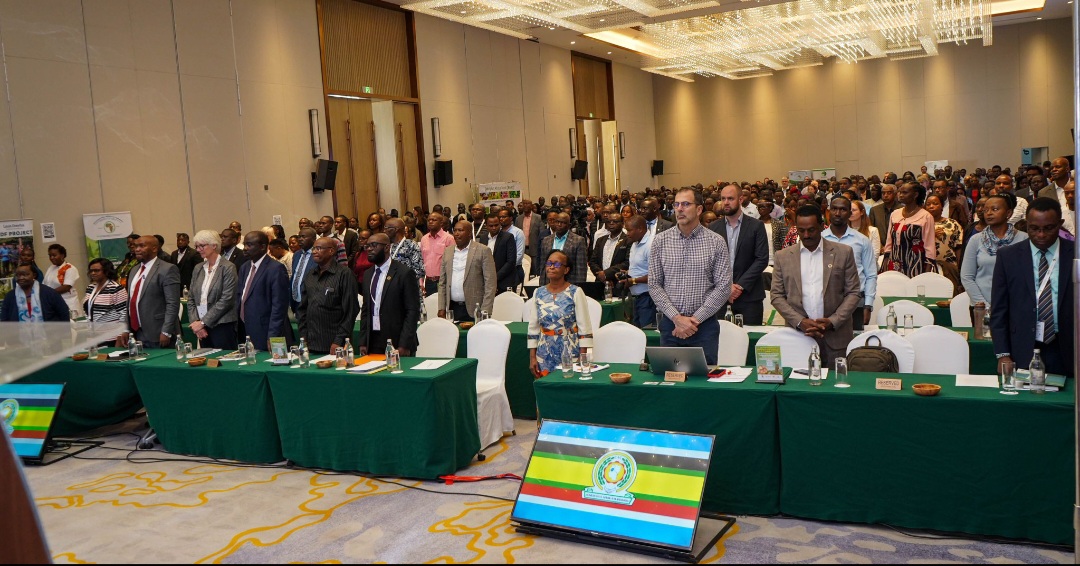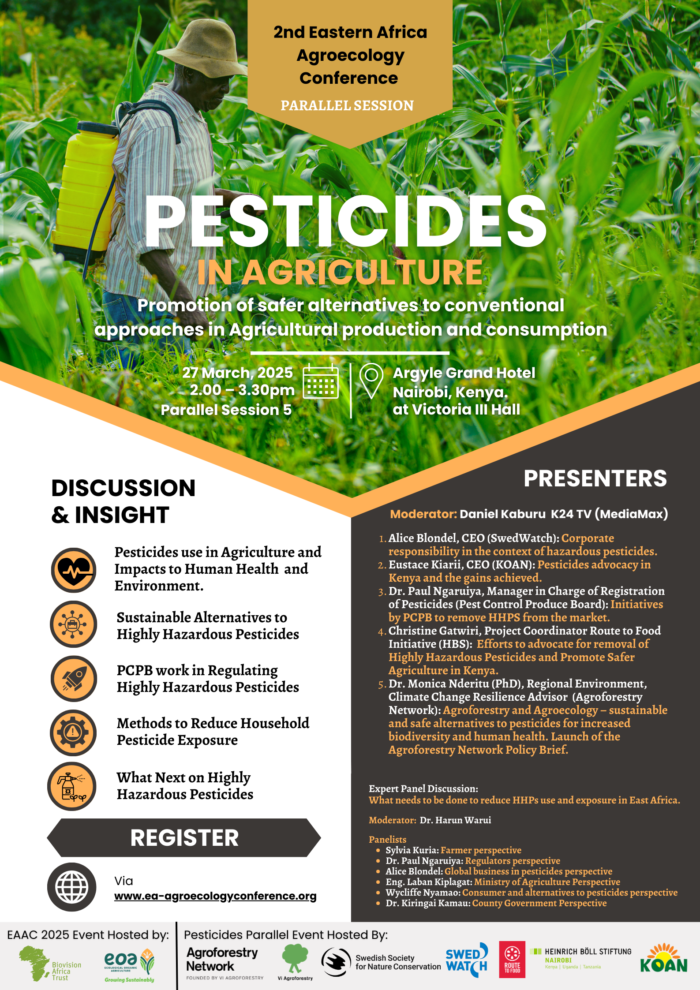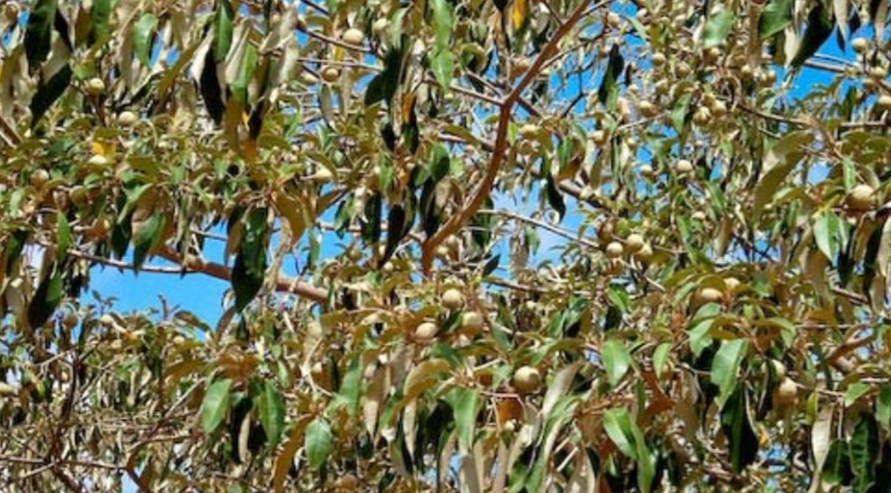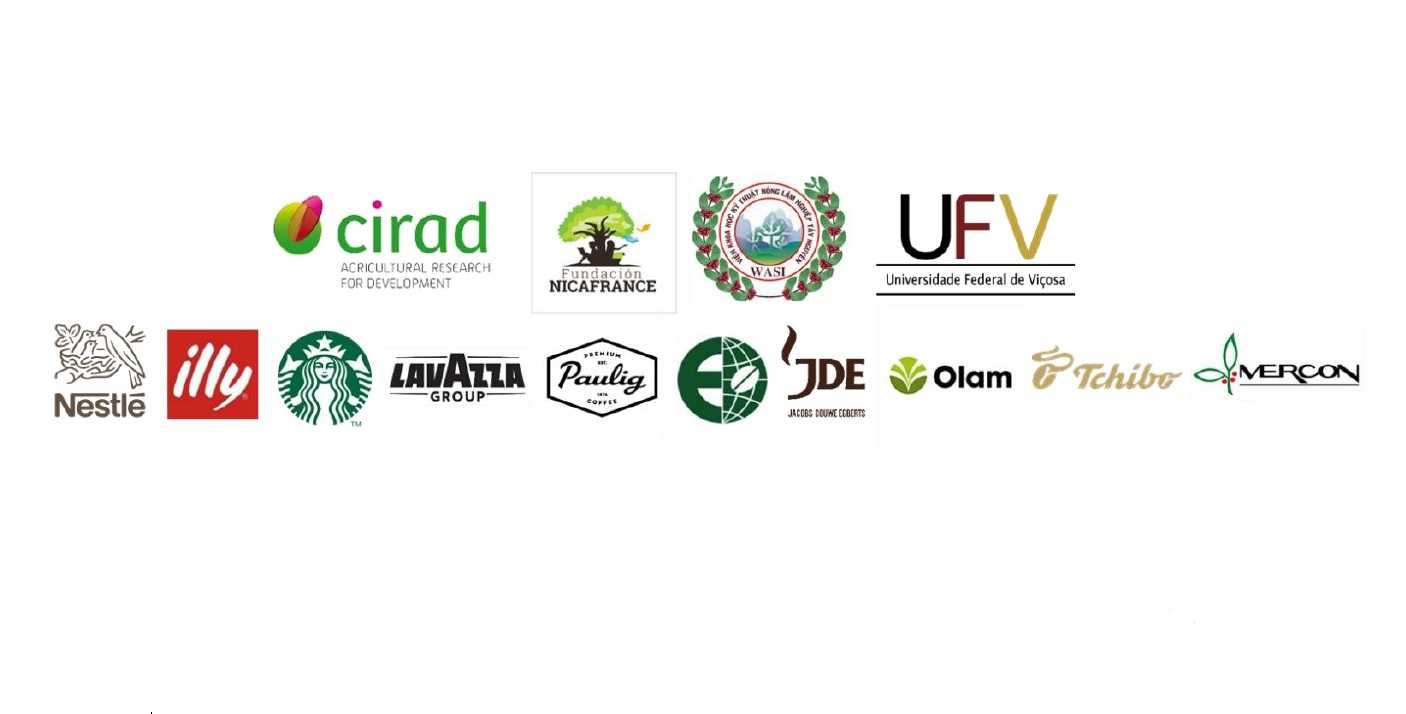- Pathways for enhancing production, productivity and sustainability of agri-food systems with agroecological interventions
- Food security, nutrition, and health nexus: Soil health and farmer managed seed systems
- Movements for empowerment of women and youth in agroecology
- Trade, markets and economy: Implications for agroecological transitions
- Institutional and policy opportunities for unlocking potential of agroecology in agri-food systems
- Financing mechanisms for agroecological pathways and transitions
In a move to propel the growing global movement for agroecology, Kenya hosted the second Eastern Africa Agroecology Conference (EAAC) in Nairobi. The EAAC conference motivated stakeholders to invest in interventions that transform current unsustainable food systems by transitioning towards agroecology and more environmentally friendly solutions with long-term vision and planning. It has attracted over 820 participants from 43 countries across Africa and beyond, drawn from representatives of governments, the private sector, farmers’ associations, NGOs, academia, research institutions, investors, and development partners.
Organised by Biovision Africa Trust, the Ministry of Agriculture and Livestock Development, and over twenty partners, the conference harnessed the potential of agroecology in transforming and sustaining resilient agri-food systems. Themed ‘Strengthening Agri-Food System Transformation for Resilience, Sustainability and Socioeconomic Development’, the event promoted sustainable organic farming systems to improve food security, agricultural productivity and livelihoods across Africa while safeguarding the environment.
Extracts of the programme
25/03 Productivity, Production, Soil Health and Farmer Managed Seeds
- Markus Arbenz, Project Leader/Senior Consultant, Department of International Cooperation – FiBL Switzerland: “Evidence for Narratives” and other contributions of Research for Agroecology and Organic development in Africa
- Dr. Chrysantus Mbi Tanga, Senior Scientist, Head of Insects for Food, Feed and Other Uses (INSEFF) Program: Insect frass fertilizer innovations for better soil health and agri-food systems transformation in Africa
- Rémi Cluset, Agroecology advisor, FAO: Advancing agroecology with TAPE+: Tools for local and national policy action
Panel Discussion
- Markus Arbenz, FIBL
- Dr. Chrysantus Mbi Tanga, icipe
- Remi Cluset, FAO
- Dr. Sarah Olembo, Chair, ASBPP EOA FMSS Cluster
- Daniel Wanjama, Executive Director, Seed Savers Network
25/03 Policy and Institutional Arrangements
- Dr. David Amudavi, Executive Director, Biovision Africa Trust
- Dr. Hans R. Herren, Board Chair and President (2005-) Millennium Institute USA: Political and policy changes for a fair, healthy and regenerative food system
- Dr. Ronnie Brathwaite, Senior Agriculture Officer (Plant Production and Protection Division) Food and Agriculture Organization of the United Nations (FAO): Agroecology in a changing geopolitical climate
- Dr. Janet Edeme, Head Rural Economy Division & Acting Head of Agriculture and Food Security Division, African Union Commission, Addis, Ethiopia: Unlocking the Potential of Agroecology in Africa: Creating synergies with the AU CAADP Kampala Declaration
Panel Discussions
- Hon. Mutahi Kagwe, EGH Cabinet Secretary, Ministry of Agriculture & Livestock Development Kenya
- Hon. Fred Bwino, State Minister for Agriculture, Uganda
- Dr. Hans R. Herren, Millennium Institute
- Dr. Ronnie Brathwaite, FAO
- Mr. Bodo Immink, Country Director GIZ
25/03 Side event 1: The Contribution of the Knowledge Center for Organic Agriculture Initiative to the Agroecology Sector in Africa: The Past, Present and the Future.
Organizers: Knowledge Centre for Organic Agriculture and Agroecology in Africa (KCOA),
and Knowledge Hub for Organic Agriculture and Agroecology in Eastern Africa (KHEA).
- Moderator: Francis Nsanga, KHEA Project Manager
- Keynote Presentation; by Florian Peloschek, Advisor Digital Knowledge Platform, KCOA.
- KHEA Phase II Impact; by Lennox Ouma, KHEA M&E officer
- KHEA Flagship documentary on Impact; by Pamela Magino, KHEA Communications Officer
- Sharon Bundi - KHEA Organic Farmer & Multiplier (Kenya)
- Julius Echodu - KHEA Multiplier (Uganda)
- Emmanuel Paul Nyange - KHEA Multiplier (Tanzania)
- Albert Nkundabagenzi - KHEA Multiplier (Rwanda)
- RAOELINARIVO Holy Harinoro - KHEA Multiplier (Madagascar)
25/03 Side event 5: Growing Resilient Futures in Africa: Advancing Nature-Positive Agrifood Systems Transformation
This event unpacked the concept of Nature Positive Solutions, focusing on its potential for
enabling agrifood systems transformation towards improved inclusiveness, sustainability, and
resilience.
- Dr. Saskia Marijnissen, Senior Policy Advisor, African Union
- Ms. Nancy Rapando, WWF Leader for Africa's Food systems Initiative
- Dr. Ronnie Brathwaite, Senior Agriculture Officer, FAO
- Dr. Carlo Fadda, CGIAR; and a farmer representative.
26/03 Women, Youth & Political Economy of Climate Change
- Ms Monica Yator, Founder and Executive Director, Indigenous Women and Girls Initiative (IWGI): Scaling Up Agroecology in ASAL Areas: Challenges and Opportunities for Indigenous Pastoralist Communities in Baringo
- Ms Pramila Mwibanda, TEJATI Youth Ambassador: Catalyzing Transformative Agroecology by Harnessing Youth Potential
- Ms. Nancy Rapando, WWF Africa Food Lead: Agroecology, Advancing the Food, Climate and Nature Nexus
Panel
- Dr. Million Belay, General Coordinator AFSA
- Dr. Beatrice Kiage, APHRC
- Monica Yator, Founder and Executive Director, Indigenous Women and Girls Initiative (IWGI)
- Ms Pramila Mwibanda, TEJATI
- Ms. Nancy Rapando, WWF Africa Food Lead
- Lise Chantal, National Coordinator, Rwanda Organic Agriculture Movement (ROAM)
- Hannington Owegi, Secretary General (SG) PELUM Association Regional Secretariat
26/03 Parallel Session 1: Measuring the Impact of Agroecology: Productivity, Profitability, and Sustainability
- Ms. Carolyne Wangungu (presenting author), Dr. Lukas Pawera, Mr. Augustine Wafula, Dr. Srinivasan Ramasamy: A Cost-Benefit Analysis of Conventional and Agroecological Approaches for Production of Traditional African Vegetables in Murang’a County, Kenya
- Ms. Celia del Campo Aragones (presenting author), Mr. Chanyalew Aweke, Mr. Joe Alpuerto, Mr. Remi Cluset, Mr. Daniel Bordi, Mr. Zelalem Behailu Teklewold: Assessing the Impact of the Ecological Organic Agriculture Project in Walmera Woreda, Ethiopia: A Multi-Dimensional Approach through the TAPE tool
- Mr. David Bautze (presenting author), Ms. Anouk Unternährer, Dr. Anne Muriuki, Dr. Edward Karanja, Dr. Milka Kiboi: Productivity and profitability of organic and conventional systems: Results from two Kenyan long-term trials
- Ms. Friederike Schilling (presenting author), Dr. Miriam Romero, Dr. Amy Faye, Dr. Bibiana Betancur-Corredor, Dr. Heike Baumüller, Prof. Joachim von Braun: Productivity effects of agroecological practices in Africa: insights from a systematic review and meta-analysis
26/03 Parallel Session 3: Agroecological Pest Management for Sustainable Crop Protection
- Dr. Simon Boni, Dr. Stephen Othim, Mr. Nickson Mlowe, Ms. Judith Assenga, Mr. Raphael Mallogo, Dr. Fekadu Dinssa, Dr. Srinivasan Ramasamy (presenting author), Dr. Komivi Akutse, Dr. Daniel Mutyambai: Management of diamondback moth and aphids in cabbage using push-pull technology in Tanzania
- Evanson Rigan Omuse (presenting author), Dr. Honest Machekano, Dr. Daniel Mutyambai, Dr. Subramanian Sevgan, Dr. Frank Chidawanyika: Effects of intensified push-pull technology and frass-based soil amendment on pest damage, striga weed, carbon sequestration and farm productivity
- Ms. Bretor Mutua (presenting author), Dr. Edward Karanja, Dr. Thomas Dubois, Dr. Daniel Mutyambai: : Intercropping kale (Brassica oleraceae var. acephala) with Rosemary (Rosmarinus officinalis) reduces key pests and increases parasitism, reducing pesticides use.
- Mr. Lawrence Ochieng: Host Plant Resistance, Botanical Insecticides and Field Margin Vegetation for Integrated Pest Management: A case of Aphids in Dolichos Beans
27/03 Parallel Session 5: Special Session on Pesticides in Agriculture
- Alice Blondel, SwedWatch CEO: Corporate responsibility in the context of hazardous pesticides
- Eustace Kiarii, CEO KOAN: Pesticides advocacy in Kenya and the gains achieved
- Dr. Ngaruiya, Pest Control Produce Board (PCPB): Initiatives by PCPB to remove HHPS from the market
- Christine Gatwiri, Project Coordinator Route to Food Initiative (RTFI) HBS
- Dr. Monica Nderitu, Agroforestry Network: Agroforestry and Agroecology – sustainable and safe alternatives to pesticides for increased biodiversity and human health Brief on Agroforestry and Agroecology as sustainable – Launch of the Agroforestry Policy Brief
Resource:
Agroforestry Network (2025) Agroforestry and agroecology – Sustainable and safe alternatives to pesticides # 12 pp.
This brief outlines how agroforestry and agroecology can serve as sustainable alternatives to synthetic pesticides, and simultaneously build resilient agri-ecosystems, combat climate change, and empower smallholder farmers and vulnerable communities to adapt to the challenges of a changing climate.
Example:
A tree normally grown as a wind breaker or planted as a fence by Kenyan farmers now offers a new opportunity for biopesticide production.
- Croton megalocarpus, a tree native to East Africa, holds potential as a source of natural pesticides and organic fertilizers, with its nuts and husks containing compounds that can be used for pest control and soil enrichment.
- The croton tree, a non-food crop known as Msenefu in Kiswahili, Omkinduli in Luhya, Mukinduri in Gikuyu , Kelelwet in Kipsigis and Lemaruguet, Masineitel, Mkigara, Mlalai, Muhande and Musine in various other parts of Kenya, is promising equal opportunities in the quantity and quality of biofuel, according to biofuel experts.
- Croton megalocarpus grows naturally in various ecological zones- from the Coast to the highlands of central Kenya and the dry lands of the North Rift. In these regions, the annual rainfall ranges between 400mm and 1,400mm.
IBMA-Kenya is a non-profit brainchild of the four leading producers of biological control products in Kenya (The Real IPM (K) Ltd, Koppert Biologicals, Dudutech Integrated Pest Management Ltd, and Elephant Vert Kenya, KAPI Limited) primarily to promote and advocate the use of biologicals in integrated crop protection, organic farming, and public hygiene.
- Born from the larger IBMA Global (head office in Brussels), IBMA-Kenya endeavors to provide localized awareness and advocacy on the importance of Integrated Pest Management as well as increased adoption of Biocontrol products in the horticultural space.
- It represents manufacturers, distributors, and growers of Biocontrol solutions and products that are environmentally safe, and harnessed, or harvested from nature.
- Green biocontrol tools protect the crops and environment presently and most importantly in the future, and should be the first measure considered for preventative and curative control of pests and diseases sustainably.
The biopesticide from Croton megalocarpus (a widespread tree in East Africa) was fast-tracked by the Kenyan government as part of efforts to reduce reliance on synthetic pesticides, particularly in the horticulture sector where exports to the EU face strict controls on chemical residues. The product was developed through research partnerships that demonstrated its effectiveness against common pests while being safer for people and the environment. By accelerating its approval, the government aimed to both protect market access for Kenyan fruits, vegetables, and flowers in Europe and promote sustainable alternatives that align with global trends toward residue-free and environmentally friendly crop protection.
Kapi Limited developed the biopesticide—commercially known as Agripest Organic 75EC (or EcoPest 75EC)—using oil extracted from the seeds of Croton megalocarpus as the active ingredient. It was formulated and manufactured locally in Nakuru County, Kenya. Farmers appreciated its 24-hour pre-harvest interval and zero residue characteristics, making it a safer alternative for horticultural produce headed to export markets.
The development of this bio-based pesticide followed eight years of research, during which Kapi collaborated with partners such as the Natural Resources Institute (NRI), Egerton University, and EcoFix. These collaborations advanced the understanding and utilization of bioactive principles in Croton seed oil, which led to the commercial creation of the product.
Contact: Pepe SHAW, Marketing KAPI Limited
Example: Ecoffee R&D initiative (With Private companies)
At the initiative of CIRAD, the French Agricultural Research Centre for International Development, and supported by Agropolis Fondation, a large private-public consortium has been created to tackle this pressing issue in coffee.
Alongside CIRAD, seven roasters (illycaffè, Jacobs Douwe Egberts, Lavazza Group, Nestlé, Paulig, Starbucks Corporation and Tchibo), three green coffee suppliers (ECOM, Mercon and Olam) and three research organizations in Brazil (Universidade Federal de Viçosa), Nicaragua (the NicaFrance Foundation) and Vietnam (the Western Highlands Agriculture & Forestry Science Institute) have joined the initiative.
Location: Brazil, Costa Rica, Mexico, Nicaragua, Vietnam
Budget managed by CIRAD: 1 900 000 EUR
Funding: Ecom, Illy, Jacobs Douwe Egberts (JDE), Luigi Lavazza, PAULIG FINLAND LTD, Nestlé, Starbucks, Tchibo
The Ecoffee R&D initiative promotes a smooth and planned transition to zero pesticides in coffee production
- A multi-stakeholder initiative, including farmers, based on collective intelligence, open to all reasonable innovations
- Learning from existing solutions in coffee & other crops to reach impact in the short term, while simultaneously developing new innovations
- A thorough monitoring of the environmental, economical and social impact of the outputs
- An international experimental network evaluating & developing pesticide-saving methods
27/03 OFFICIAL CLOSING
- Convenor: Markus Arbenz, Project Leader/Senior Consultant, Department of International Cooperation – FiBL Switzerland
- Call to Action: Ms. Venancia Wambua, Head of Programmes (EOA&KCOA), Biovision Africa Trust
- Hon. Fred Bwino, State Minister for Agriculture, Uganda
- Keynote Address by Chief Guest: Dr. Kipronoh Ronoh Paul, Principal Secretary, The State Department of Agriculture
- Closing Remarks – Dr. David Amudavi, Executive Director, Biovision Africa Trust
- Vote of Thanks – Mr. Alex Mutungi, EOA Continental Secretariat Coordinator, Biovision Africa Trust








No comments:
Post a Comment